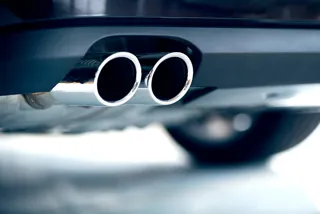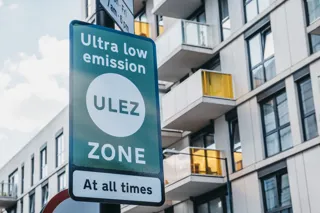Speed limits on parts of four motorways are to be cut before October in a trial to reduce pollution.
Highways England said the limit will be reduced from 70mph to 60mph in areas that have seen higher than recommended levels of nitrogen dioxide.
The reduced speed limit will be introduced on M6 junctions 6 to 7 by Witton, M1 junctions 33 to 34 by Rotherham, M602 junctions 1 to 3 by Eccles and M5 1 to 2 by Oldbury.
Each locations is up to 4.5 miles long and the new speed limits will be operational 24 hours a day.
The reduced speed limits will be assessed after 12 months to see if they are having an impact, or if the air quality level is compliant.
Ivan Le Fevre, head of environment at Highways England told the BBC: "Ultimately the air quality challenge will be solved 'at the tailpipe' by vehicle manufacturers and changes in vehicle use.
"Until this happens we will continue our extensive programme of pioneering research and solutions."
Recent Department for Transport figures show the proportion of cars sticking to the speed limit is at its highest on 60mph roads.
The data measures speed and compliance at sites where the road conditions are free-flowing, for example roads with no junctions, sharp bends, speed enforcement cameras or other traffic calming measures.
In 2019, 50% of cars were found to exceed the speed limit on motorways, 54% on 30mph roads and just 9% where limits were 60mph.
The DfT says the statistics provide insights into speeds at which drivers choose to travel when free to do so, but are not estimates of average speeds across the whole network.
It notes that the average car speeds under free flow conditions were close to the speed limit on motorways (69mph) and 30mph roads (31mph) – and under the speed limit on 60mph roads (50mph).
























Tony Richards - 14/09/2020 12:34
Yet again we have some so called experts reducing the speed limits due to increased pollution at Oldbury junctions 1 to 2. This was the same stretch of motorway that was reduced to 30 mph for 2.5 years whilst they carried out repairs and caused horrific jams at the same time and is probably the reason that pollution was up at this particular stretch of road.